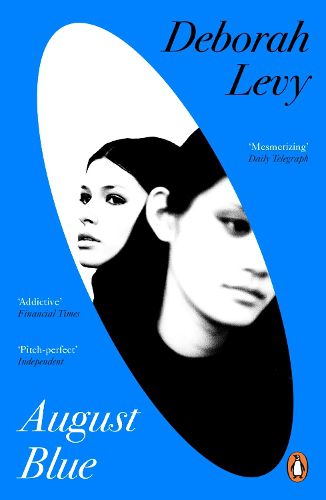Readings Newsletter
Become a Readings Member to make your shopping experience even easier.
Sign in or sign up for free!
You’re not far away from qualifying for FREE standard shipping within Australia
You’ve qualified for FREE standard shipping within Australia
The cart is loading…






At the height of her career, concert pianist Elsa M. Anderson - former child prodigy, now in her thirties - walks off the stage in Vienna, mid-performance.
Now she is in Athens, watching as an uncannily familiar young woman purchases the last pair of mechanical dancing horses at a flea market. Elsa soon begins a journey across Europe, on the run from her talent and her history, shadowed by the elusive woman with the dancing horses.
A dazzling portrait of melancholy and metamorphosis, August Blue uncovers the ways in which we seek to lose an old story, find ourselves in others and create ourselves anew.
$9.00 standard shipping within Australia
FREE standard shipping within Australia for orders over $100.00
Express & International shipping calculated at checkout
At the height of her career, concert pianist Elsa M. Anderson - former child prodigy, now in her thirties - walks off the stage in Vienna, mid-performance.
Now she is in Athens, watching as an uncannily familiar young woman purchases the last pair of mechanical dancing horses at a flea market. Elsa soon begins a journey across Europe, on the run from her talent and her history, shadowed by the elusive woman with the dancing horses.
A dazzling portrait of melancholy and metamorphosis, August Blue uncovers the ways in which we seek to lose an old story, find ourselves in others and create ourselves anew.
Deborah Levy’s new novel unfolds like a dream – surreal, beguiling, enigmatic. As with most of Levy’s work, it creates a singular world, influenced by Duras and de Beauvoir and the films of Chantal Akerman, but mostly requiring navigation on its own terms.
In August Blue, that world is our world, where people wear masks and get jabs; a world where meaning and identity are even more precarious than before. The specific existential crisis here belongs to Elsa M. Anderson, a globally celebrated concert pianist. A former child prodigy, Elsa has recently dyed her waist-length hair blue and frozen on stage in Vienna during the opening bars of Rachmaninov’s Piano Concerto No. 2.
We meet her in the aftermath of this crisis, decamped on the continent, giving piano lessons to teenage students. In a flea market in Athens, Elsa watches a woman buy a pair of mechanical toy horses that dance when their tails are raised. Elsa believes the woman is her double. She wants the horses; the reason will eventually become clear.
The double articulates Elsa’s thoughts for her. She sees her again in London, then Paris, and as they shadow one another around the world, memories of Elsa’s childhood emerge – of her adoption when she was six by the world-renowned piano teacher Arthur Goldstein, and of her mother. These memories echo, like musical notes, layered through time.
Elsa, like many Levy women before her, behaves in unexpected ways. ‘Maybe I am,’ she repeats, indicating an uncertainty about who she is and what she wants. Levy’s writing, fiction and nonfiction, is concerned with what it takes for a woman to become the centre of her own story, and what is gained and lost in order to live a creative life. There is turmoil, but like the oil painting by Henry Scott Tuke that gives this novel its name, there is also calm, the potential for transformation, and rebirth in the deep blue.
Your favourite books are now available in a compact B-format paperback! Budget friendly and easy to carry with you.
Deborah Levy is the author of several critically acclaimed novels including August Blue, Hot Milk and Swimming Home.